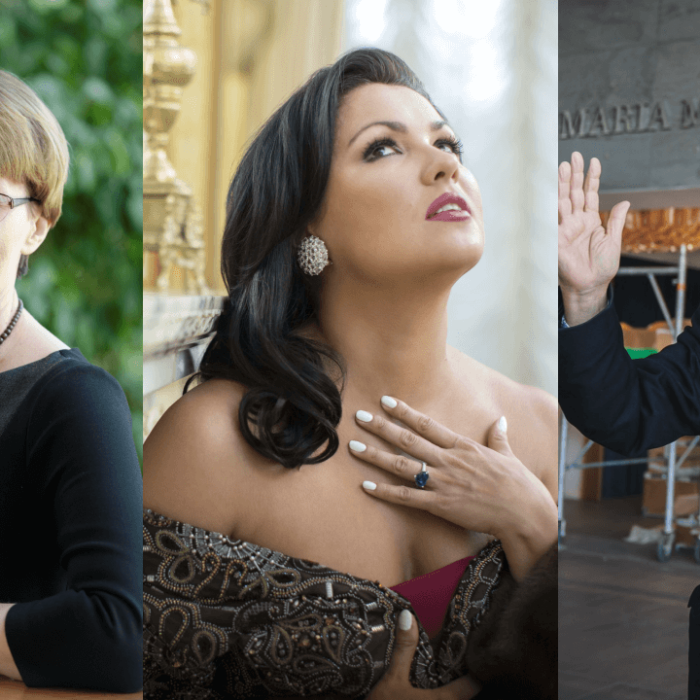
Criticism on Fridays: The Voices Raised Against the Coming Changes At the MET
The Modern Biz-Dev Strategies At the Met Seem to Cause a Predictable Public Response
By Polina LyapustinaIn this crazy and cruel world, stay classy and go to the opera. We are proud opera lovers, standing for the high art, for the most sophisticated art form. We want to preserve the heritage, and keep it great. We don’t follow the modern global market trends.
Or do we?
Every time Google releases a new version of its Operation System, the owners of hundreds of models of tiny and big smartphones stand still, hoping to update soon (if they ever will), and learn to deal with the new features with excitement.
Every time Apple releases a new version, the owners of the last model of the iPhone, who “have to” buy the new device every year, choke with anger. “How horrible is that, I liked how it was before,” they shout, even though changing the brand would be the last thing they ever considered.
Apple is a lifestyle and a part of self-perception for many people.
And guess what? So is the Met.
Since the Metropolitan Opera announced its plans to change the policy towards the repertory and schedules to remedy a difficult financial situation the institution is facing after the pandemic, the audience simply cannot stop expressing displeasure with General Manager Peter Gelb’s new strategy.
Prioritizing new operas and reducing the number of performances by almost 10 percent is only a part of the bigger plan, which also includes the withdrawal of up to $30 million from Met’s endowment and intensified work with donors.
But are those changes so crucial or are we afraid of losing the Met we got used to?
Going into the unknown is scary, but if we think about it, this actually sounds like a good business development plan. The previous model did not perform well, and the pandemic changed the habits of consumption. Something had to be changed. And, I suppose, management spent long weeks trying to figure out what people want [to pay for], so they would return and fill the hall to the desirable 80 percent.
But, as often happens in such user research, they might only be finding what the audience doesn’t want. People keep noting how the modern approach to the old masterpieces falls short of expectations. But what they fail to realize is that they paid no attention to the old Zeffirelli productions either, and the poor media coverage didn’t ultimately help to bring more people to see another Violetta (even if there were some truly mesmerizing ones ).
“People don’t know what they want until you show it to them,” Steve Jobs once said. And this is what, I believe, the recent sold-out performances clearly proved to Peter Gelb. Though Metropolitan Opera was careful after the pandemic and made no big headlines about changing the strategy during the last years, they risked, tried new approaches, and saw them work.
Did many of the classic opera lovers that gave a standing ovation after the performance of “The Hours” predict or ask to see something like this? Did many newcomers who filled the hall for “Fire Shut Up in My Bones” expect to see such a story on the stage of the opera house? That was a new Met that didn’t try to meet the audience’s expectations anymore. And yet, all those people were there, and they were many.
And these simple metrics, besides bringing triumph for the authors and the cast, also gave hope for a solution to the financial problem facing the company. It promised stable and progressive wages for workers, better contracts, new contributions from modern composers, and new artistic collaborations.
But in no way did that mean the cancellation of the classics.
I even think that the diversity of the repertoire could promise some kind of protection for classics from brave innovations and excessive creativity.
Many fans of classics, not only in music but in aesthetics, were hurt by recent attempts of the Met to change the industry. The shiny, but lackluster, Vegas “Rigoletto” staging and overly expensive machinations of the Ring cycle hit them the worst. Those moves showed them the industry was changing, even in their beloved classical house of gold. In our crazy times, it’s like the ground is slipping away from under your feet. Therefore, the conservative (and not only elderly) audience is pretty tough on accepting any changes.
And when the storm is rising, people, for better or worse, are quick to express all their worries. And at some point, we can see the long-suppressed concerns and objections get out of control.
Ticket prices are indeed the core hardship for many people, and yet, it’s more a problem of the user interface (since we started to talk in this metaphor, let’s keep going). It’s not like there are no affordable tickets at the Met, it’s just that people have no idea how to get them since there are no clear guides to follow. People keep believing that tickets under $200 don’t exist or are rather rare. And so, the rush, weeknights, Fridays under 40, the subscription options, and sales on TDF tickets, which might and have to open the doors for the new audience, remain the prerogative of connoisseurs and regulars. And these cheaper tickets are rarely sold-out for the regular shows (also consider how much people pay for Broadway shows, which do much better business; the marketing machine is one reason, but the excitement of new shows is also part of that).
Another problem that often appears in people’s comments on that matter is that people feel themselves the prisoners of the Met, having no options, and therefore are afraid they will be forced to see what they don’t want.
But actually, there are a bunch of options. There are about 30 theaters performing opera in NYC and another hundred small private institutions throwing performances once in a while. Not to mention traveling for opera is always an option and neighboring towns, states, cities, and yes, countries, have LOTS of opera to show.
But if you prefer the highest rate stars delivered to your comfortable seat in the heart of New York and this is the description of opera for you, well, you’re lost — it is a common iPhone syndrome. There are fans of opera, and there are fans of the Metropolitan Opera. It’s a choice.
And these two options have quite distinct costs. I don’t mean only the ticket price. I mean transportation, timing, the bills in the cafe, and the way one can or cannot choose what and how it will be performed.
The Met has been building its name and its substance for decades. People say, “I go to the Met,” and sometimes it means more than a particular opera they are going to see. And it also means they want to go to the Met, not just go to see the opera. They want the experience of the Met. In this context, it has been a long time since these audience members have lost control over what they see and if they haven’t stopped going to the Met after those “Ring” and “Rigoletto” productions, it’s very probable that they will remain loyal after this announcement.
Because, besides the costs, the level of satisfaction also differs. With all this controversy, and perhaps only more for this reason, at the Met, like nowhere else, you can feel the childish excitement. You can be ecstatic to the point of losing consciousness. And also, you can be loudly unsatisfied (and this, let’s not hide it, is a certain pleasure too as we can see from the raging comments after the announcement).
And for now, we are free to react to this update as we wish. This will be just a side treat for us, the audience. If we come. For classics or modern composers, it actually doesn’t matter.
The question is whether the Met has already developed its competitive edge enough to dictate its own rules so boldly and push the audience to progress vigorously after the pandemic. And therefore, whether the new strategy will bring sufficient financial improvements to the titan institution, which we are all so dissatisfied with in recent years, and without which, let’s agree, we cannot imagine the world of opera.
Categories
Editorials

